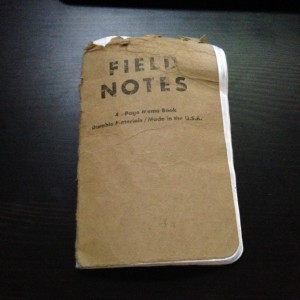 Ethnography is the study of cultures through close observation, reading, and interpretation. Ethnographic researchers work “in the field,” in the culture which they are studying. The activities they conduct are also often called fieldwork. Ethnographers define the word “culture” in broader terms, as a patterned behavior or way of life of a group of people. Some of the elements of culture then are the common habits, customs, traditions, histories, and geographies—everything that connect the members of the culture together and defines them. Ethnographic research allows the researcher to get “up close and personal” with cultures. It places researchers at the heart of the investigations, often allowing them to participate in the very culture they study. Such an active role gives writers valuable insights into their subject, which usually cannot be achieved simply by studying books, journal articles, and websites.
Ethnography is the study of cultures through close observation, reading, and interpretation. Ethnographic researchers work “in the field,” in the culture which they are studying. The activities they conduct are also often called fieldwork. Ethnographers define the word “culture” in broader terms, as a patterned behavior or way of life of a group of people. Some of the elements of culture then are the common habits, customs, traditions, histories, and geographies—everything that connect the members of the culture together and defines them. Ethnographic research allows the researcher to get “up close and personal” with cultures. It places researchers at the heart of the investigations, often allowing them to participate in the very culture they study. Such an active role gives writers valuable insights into their subject, which usually cannot be achieved simply by studying books, journal articles, and websites.
Death Investigators as a Culture
Culture is ordinary: that is the first fact. Every human society has its own shape, its own purposes, its own meanings. Every human society expresses these, in institutions, and in arts and learning. The making of a society is the finding of common meanings and directions, and its growth is an active debate and amendment under the pressures of experience, contact, and discovery, writing themselves into the land. The growing society is there, yet it is also made and remade in every individual mind. The making of a mind is, first, the slow learning of shapes, purposes, and meanings, so that work, observation and communication are possible. Then, second, but equal in importance, is the testing of these in experience, the making of new observations, comparisons, and meanings. A culture has two aspects: the known meanings and directions, which its members are trained to; the new observations and meanings, which are offered and tested. These are the ordinary processes of human societies and human minds, and we see through them the nature of a culture: that it is always both traditional and creative; that it is both the most ordinary common meanings and the finest individual meanings. We use the word culture in these two senses: to mean a whole way of life–the common meanings; to mean the arts and learning–the special processes of discovery and creative effort. Some writers reserve the word for one or other of these senses; I insist on both, and on the significance of their conjunction. The questions I ask about our culture are questions about deep personal meanings. Culture is ordinary, in every society and in every mind.
 Today’s Guest – Flavia Medeiros
Today’s Guest – Flavia Medeiros
Since 2009,Flavia Medeiros has been conducting ethnographic research about the relation between Medicine, Science, Justice and Police trying to understand how those fields deal with the death and decedents, specifically in homicide cases.
For her Master Degree in Social Anthropology, she has been doing fieldwork in the Rio de Janeiro Medical-Legal Institute, Brazil. Her goal was understand the proceedings that define a corpse as a dead person. This research is going to be published as a book: “Matar o morto: uma etnografia do Instituto Médico-Legal do Rio de Janeiro (in English: “Kill the decedent: an ethnography of the Rio de Janeiro Medical-Legal Institute.”) Also, she spent three months in Buenos Aires, Argentina where she could observe the Lomas de Zamora Judicial Morgue.
Currently, the title of her research project is “How are “homicides” negotiated? A comparative ethnography of the construction mechanisms of truths in cases of “intentional crimes against life” in Rio de Janeiro/Brazil and San Francisco/USA.” Her goal is to explore how “homicides” are classified, appreciating the nature of conflicts, the investigation of their facts and the classifications that will produce truths. In this direction, she proposes to observe, identify and analyze what are the practices in Rio de Janeiro (what she did during 2014) and San Francisco (fieldwork she is doing now) for the investigation, prosecution and trial phases. As well as the moralities, senses and representations triggered so that “homicides” may be traded by the institutional agents involved in construction of their truths.
In this episode I talk with Flavia about her research and what has driven her to conduct such an undertaking. We discuss her current research, the differences seen between America and Brazil and where her future research will take her. I find it interesting that she is devoting her PhD work to researching what we do.
Contact information for Flavia
tags: coroner,coroner talk podcast,police training, darren dake,sheriff,deputy,coroner association,murder scenes,csi,detective,detective training,auto fatalities,autoerotic fatalities,become a coroner,forensic science,become a csi, fire fighter, fire fighter training,police,paramedic,medicolegal,anita brooks,ptsd,secondary traumatic stress,flavia medeiros
